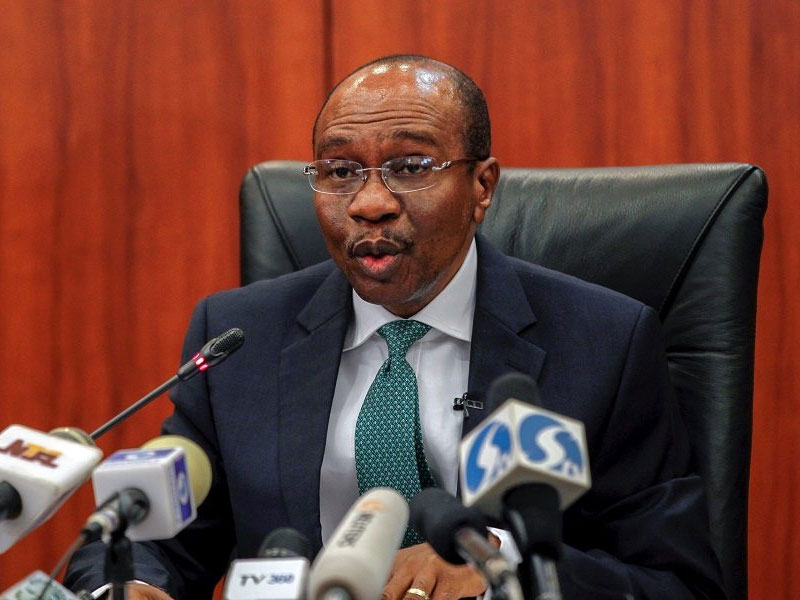Individuals and companies, who have the habit of borrowing from banks, with the intention of not paying back, may now have to change their mindsets as there will no longer be a hiding place for them within the banking industry. The agreement reached recently between the banks and Central Bank of Nigeria is that any loan defaulter’s monies in other banks should be drawn to settle their debt with any bank. Bamidele Famoofo reports
Commencing from August 1, 2020, no bank loan defaulter would have the chance to escape repayment of what they are owing their banks inasmuch they have cash in other banks other than one(s) they borrowed from. But this applies to only such customers (private and corporate) who are defaulting in paying back their loan with interest.
To default on a loan means repayment aren’t made for a certain period of time. So, when a loan defaults, it is sent to a debt collection agency whose job is to contact the borrower and receive the unpaid funds.
The new policy is what the CBN called the Global Standing Instruction (GSI), which guidelines were published on Monday, July 13.
Meanwhile, the CBN said the GSI, which was developed in collaboration with stakeholders, should be the last resort used by a bank to settle loan defaults.
The directive would apply only to eligible loans granted from August 28, 2019.
When it becomes operational, the Bankers’ Committee of the CBN, which is the biggest beneficiary of the initiative, has agreed that loan defaults will be settled using customers’ deposits in other banks. The Bankers’ Committee had aligned with the CBN at its meeting that held almost a year ago, on August 26, 2019.
The GSI guidelines published by the apex bank read in part: “The GSI shall serve as a last resort by a creditor bank, without recourse to the borrower, to recover past-due obligations (principal and accrued interest only, excluding any penal charges) from a defaulting borrower through a direct set-off from deposits/investments held in the borrower’s qualifying bank accounts with participating financial institutions.”
A bank set-off happens when a financial institution removes money from a deposit account to cover a missed payment on a loan.
Benefits of GSI
The CBN headed by Mr. Godwin Emefiele, has listed the objectives of the GSI to include facilitating an improved credit repayment culture, reducing non-performing loans (NPLs) in the banking industry and watch-listing consistent loan defaulters. Central Bank warned banks not to use the GSI to recover penal charges that may have accrued on a credit/loan and included as part of outstanding balances/obligations of a borrower. According to the guidelines, the account types that the standing instruction can be applied to include individual and joint savings accounts, current accounts, domiciliary accounts, investment/deposit accounts (naira and foreign currency), and electronic wallets.
The Caveat
The CBN however pointed out that the onus lies on the lending bank to ascertain that it has done its preliminary job of getting the credit history of customers before approving loans. Besides, banks must regularly report to the CBN on recoveries made through the GSI and releases made to other banks. Also, in the event of wrongful debit, the guideline provides that an erring bank would be made to take full liability and pay a flat fine of N500, 000 per incident.
Non-Performing Loan
According to a report published in 2019 by the National Bureau of Statistics (NBS), the Nigerian banking industry recorded a non-performing loan (NPL) of N1.05trillion in 2019. It was a significant 41 percent decline compared with N1.79 trillion in 2018.
A non-performing loan in Nigeria is the sum of money borrowed in a loan contract in which the borrower has not made required repayments agreed to for at least 90 days.
A breakdown of the banking sector lending in 2019 showed that bank loans to companies in 2019 stood at N17.19 trillion, indicating a four percent increase when compared to total loan of N15.13 trillion that was disbursed to the private sector in 2018. Parts of the NBS report said: “In terms of credit to private sector, the total value of credit allocated by the bank stood at N17.19 trillion as at Q4’19. Oil & Gas and Manufacturing sectors got credit allocation of N3.42 trillion and N2.62 trillion respectively, to record the highest credit allocation as at the period under review.”
Efforts to Curb NPL
The Central Bank of Nigeria sets limits for banks and other financial institutions on non-performing loans to reflect in their books.
For the Mortgage Refinance Corporation, it stated, “The maximum ratio of non-performing loans to total gross loans for MRCs shall not at any point in time exceed 10 percent or such other level as may be prescribed by the CBN from time to time.”
It stated that the MFBs must make provisions for credits such as general provision of two per cent of the outstanding balance of performing facilities or as may be advised by the CBN from time to time.
For DMBs, it stated, “The NPL limit banks are required to manage their credit risk effectively. To this end, all banks are to ensure that the level of NPLs in relation to gross loans does not exceed five per cent.”
A credit rating company, Start Credit, in its analysis of how banks performed with their loan to customers, published in July, said Access Bank emerged the best performing financial institution with an average non-performing loan ratio of 3.13 percent during the period analysed whilst First bank of Nigeria is the worst performer on this metric.
“A continued increase in the NPL ratio could reduce the bank’s capital base and potentially cause a risk of loss to depositors in the bank.
A loan is impaired where there is impartial evidence of one or more events in accordance with IFRS that the loan may not be paid. IAS 39 requires interest income from all loans including the impaired to be accrued. In practice, when the repayment of a loan is in doubt, the continuation of interest accrual would be recording interest income that is not likely to be recovered,” Start Credit added.








